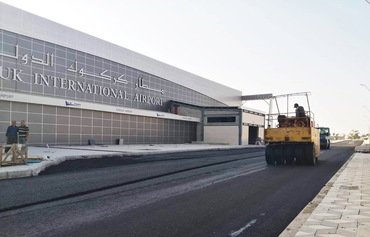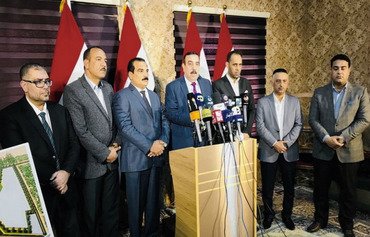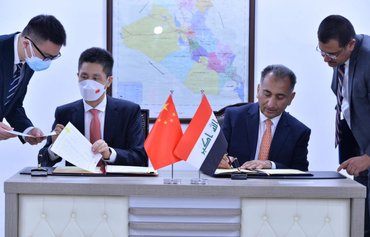The Takamul project, funded jointly by the US Agency for International Development (USAID) and Ninawa local government, is now fully operational and supports reconstruction efforts.
Ninawa province is struggling to revive its economy after the destruction of its services and development sectors by the "Islamic State of Iraq and Syria" (ISIS) from 2014 to 2017.
The Takamul project launched a website on August 6th to encourage investment and reconstruction in the province. The website offers a host of information, including data on investment opportunities for small and medium-size projects.
The digital platform provides training and technical support to improve overall performance in planning, operation and marketing stages. It does this through adopting business plans that guarantee the growth and development of projects.
![Construction work in Mosul in July. [Photo courtesy of Ninawa Investment Authority]](/cnmi_di/images/2020/09/02/25745-mosul-rebuild-platform-600_384.jpg)
Construction work in Mosul in July. [Photo courtesy of Ninawa Investment Authority]
Ali Awad Saleh, director of the Ninawa Investment Authority, told Diyaruna the digital platform is the last of several initiatives of the "Takamul" project.
Other initiatives include the Ninawa Investment Facilitation Initiative, and conducting forums and workshops with experts, members of the local government and investors.
Forums aim to help develop economic activities and the private sector, as well as support administrative and legislative reforms and reinforce the concept of governance.
Saleh said digital media tools and marketing are among the main means to ensure necessary information is available to those wishing to invest in Ninawa.
"Following the launch of the website, phones started ringing off the hook at the Ninawa Investment Authority. Investment firms and businessmen called to inquire about available opportunities and discuss ways for joint projects and partnership," he said.
"The platform provides fundamental support for our efforts to revitalise our province," he told Diyaruna.
'Integrated approach required to attract investment'
According to Saleh, Ninawa continues to face investment obstacles such as red tape when applying for permits from ministries to allocate land to investment projects.
The province should facilitate administrative procedures by helping to create an integrated investment map with allocations for agricultural, industrial or residential investments based on surveys, he said.
Ninawa has announced the launch of eight large scale investment projects in Mosul across several sectors, including housing, since the end of last year.
Noureddine Qablan, deputy chairman of Ninawa's provincial council, told Diyaruna the investment plan requires an integrated and co-ordinated approach across all departments and institutions.
According to Qablan, it is important to define the authority of different directorates when it comes to the issue of land allocation for investment. Other aspects that should be considered are the full implementation of the National Investment Law and its amendments, as well as adopting reforms that would attract investment.
"We must address the challenges that hinder investment efforts to achieve development, economic stability and create jobs," said Qablan.
Economist Saleh al-Hammash told Diyaruna that given Ninawa's economic stagnation, increase in unemployment and high poverty rate, investment is very significant for building stability after the war.
Supporting investment in the province requires high quality collective action and regulations for attracting and protecting investors, he said.
Giving the local government a greater role in building the future of the province is important for overcoming challenges, he said, adding that legal and administrative reforms would also help develop private sector investment.

![Ninawa governor Najim Al-Jubouri and other officials in a Takamul project workshop held in Erbil in July 2020. [Photo courtesy of Takamul]](/cnmi_di/images/2020/09/02/25744-Iraq-Ninawa-Takamul-600_384.jpg)






